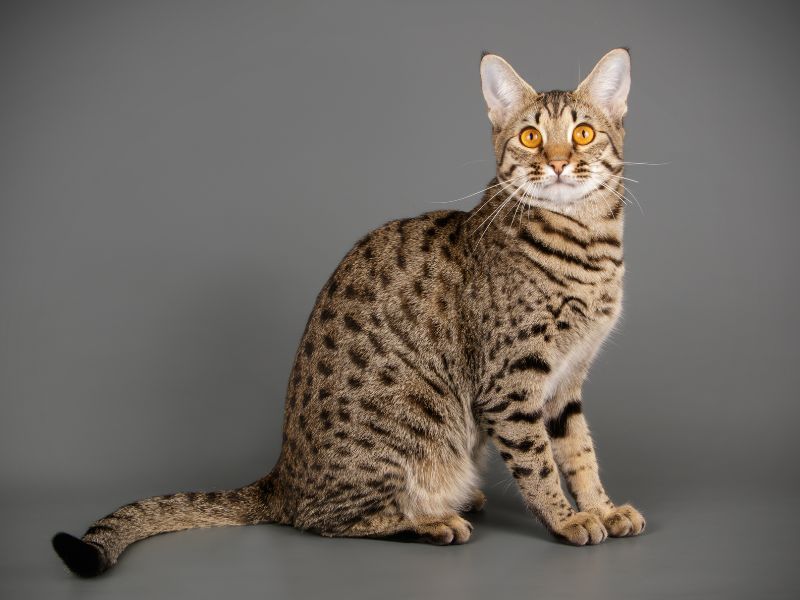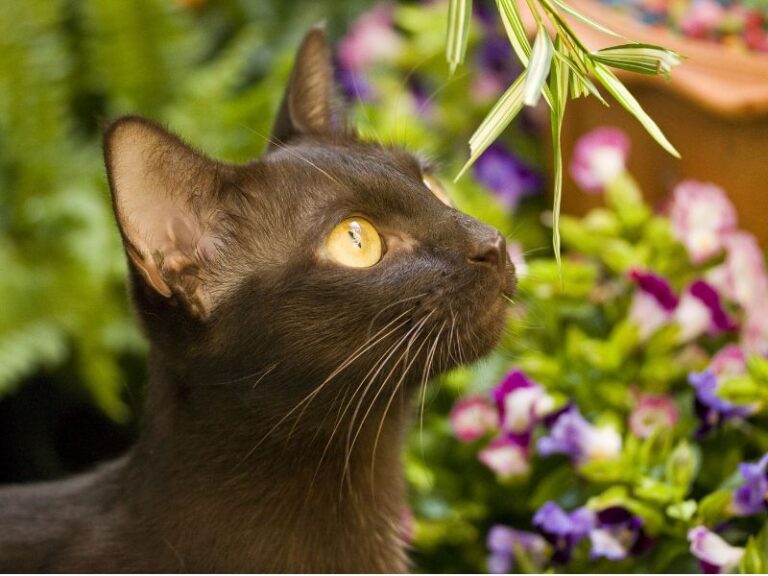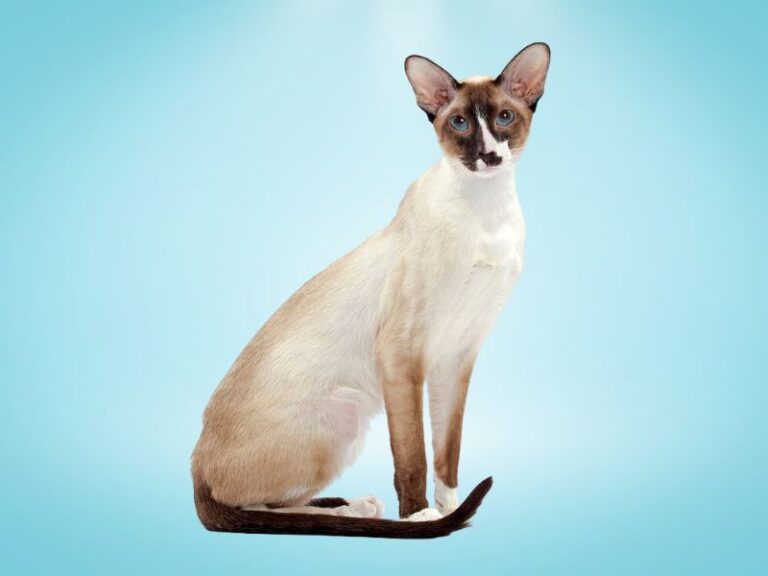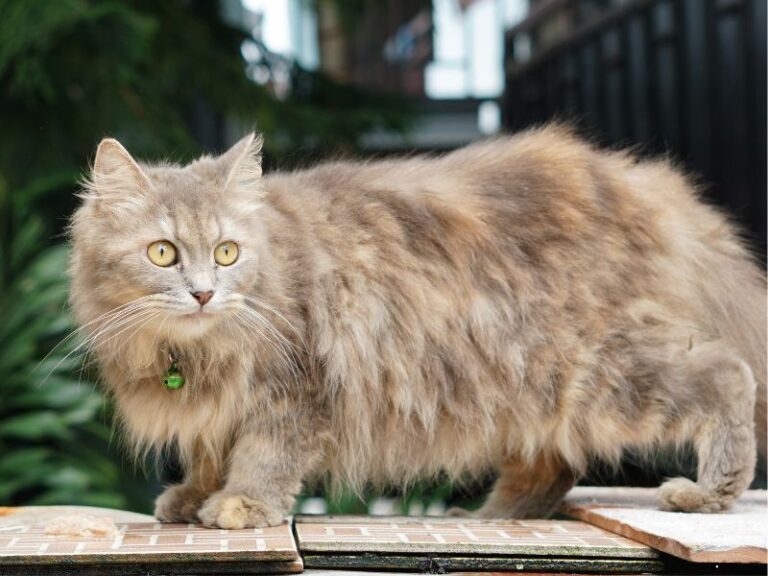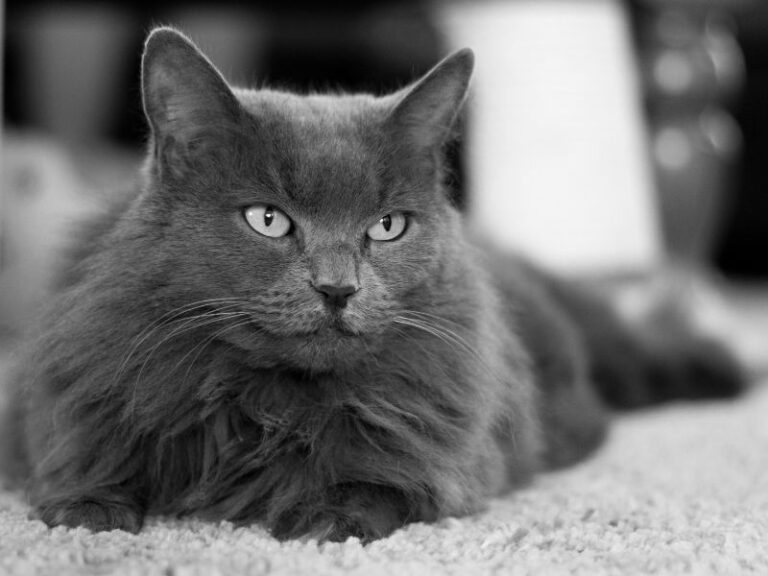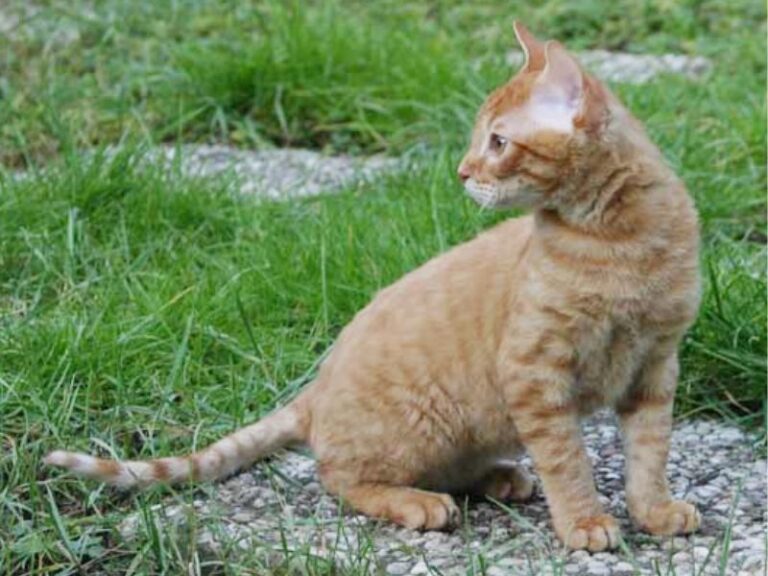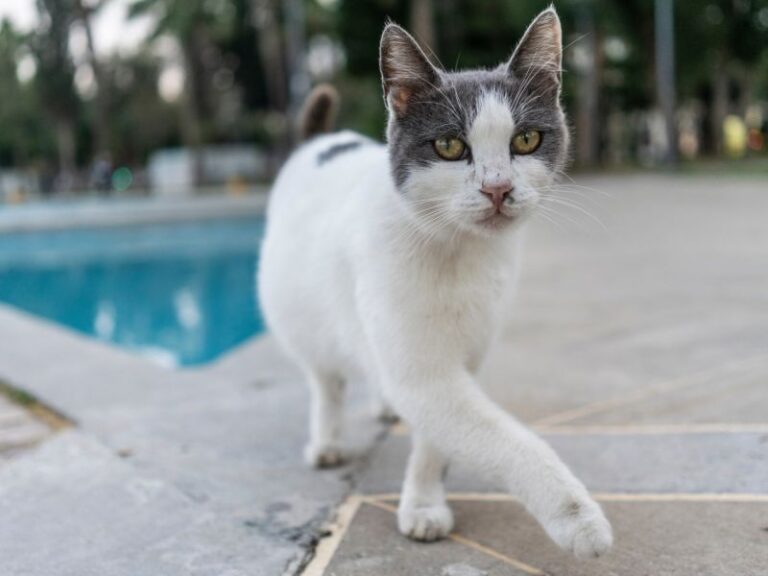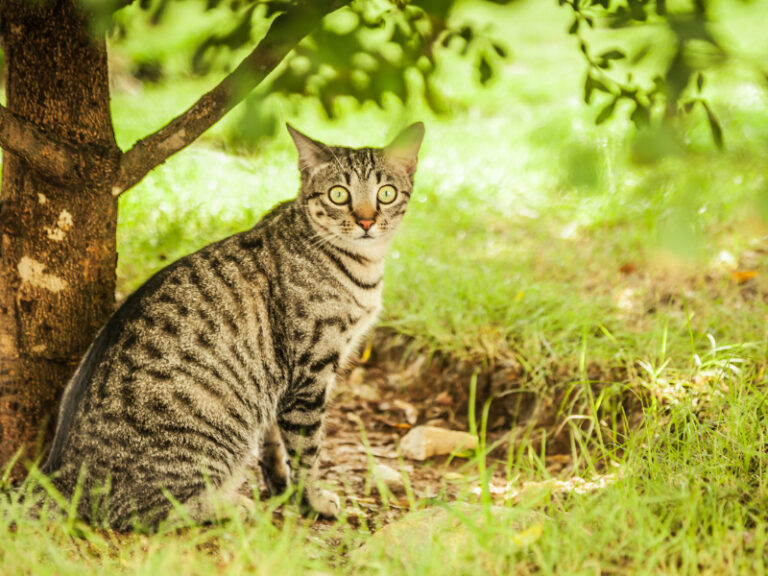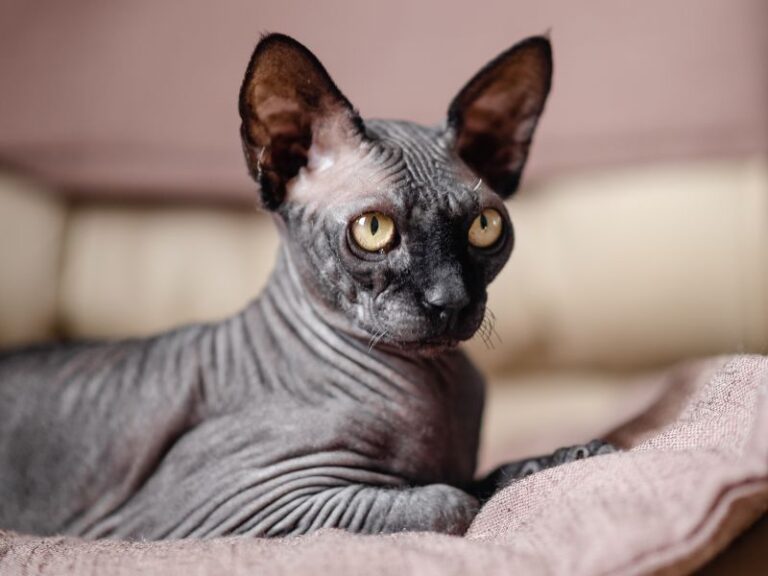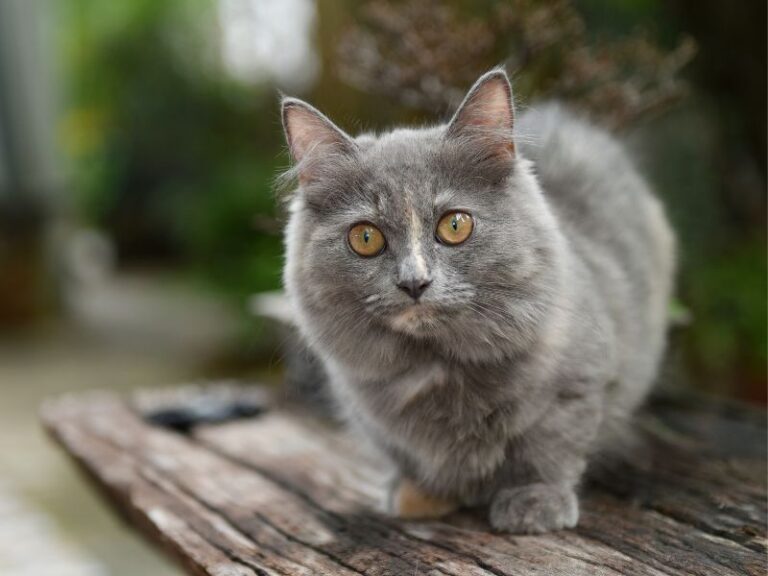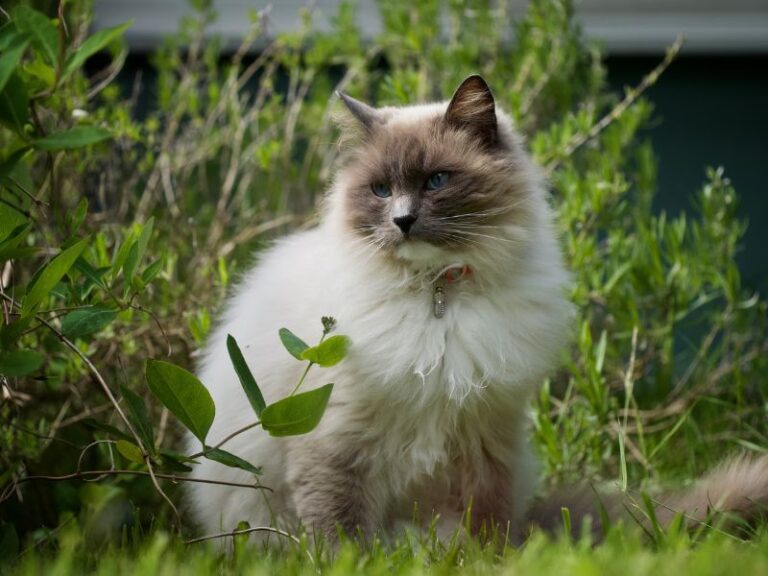Table of Contents
ToggleThe Savannah Cat, a captivating feline breed, has become a favorite among cat enthusiasts worldwide. With its stunning appearance, playful personality, and hints of wild ancestry, the Savannah Cat has won the hearts of many. In this comprehensive guide, we will delve into the origin, physical characteristics, lifespan, temperament, and care requirements of these extraordinary felines, exploring why they make such unique and beloved companions.
Savannah Cat Origin
The captivating story of the Savannah Cat’s origin begins in the 1980s when breeder Judee Frank embarked on a journey to create a breed that combined the striking looks of the African serval with the gentle and sociable nature of domestic cats. The first successful pairing between a serval and a Siamese cat resulted in the foundation of the breed. Over time, breeders continued to experiment with different domestic cat breeds to refine the unique appearance and temperament of the Savannah Cat.
Savannah Cat Physical Characteristics
The most striking feature of the Savannah Cat is its impressive size. These cats are larger than most domestic breeds, with males typically weighing between 15 to 20 pounds and females ranging from 10 to 13 pounds. Their long, slender bodies are supported by strong, muscular legs, providing them with excellent agility and grace as they move with a sense of regal confidence.
One of the defining features of the Savannah Cat is its beautifully spotted coat, reminiscent of its serval ancestry. The spots can vary in size and shape, and they adorn the cat’s coat in a stunning array of patterns, creating a mesmerizing look. The color of the coat can range from warm golden tones to cool silver shades, adding to their allure and uniqueness.
The ears of the Savannah Cat are another striking characteristic, featuring distinct tall and pointed ears with ocelli, which are white markings on the back that resemble eyes. These markings serve to confuse potential predators in the wild, adding to the breed’s allure and hinting at their wild roots.
Savannah Cat Lifespan
Savannah Cats are known for their robust health and longevity. With proper care, they can live anywhere from 12 to 20 years, making them wonderful long-term companions for those seeking a feline friend with lasting appeal. As with any breed, regular veterinary check-ups, a balanced diet, and plenty of exercise contribute to their overall well-being and lifespan.
Savannah Cat Temperament
One of the most intriguing aspects of the Savannah Cat’s personality is its blend of domestic and wild traits. While they have the affectionate and playful nature of domestic cats, they also possess a touch of the wild spirit inherited from their serval lineage. Savannah Cats are highly intelligent, curious, and energetic. They enjoy interactive play and mental stimulation, making them ideal companions for households with active lifestyles.
Their intelligence often leads them to explore their environment with a sense of adventure. Savannah Cats are known for their problem-solving abilities, and they enjoy interactive toys and puzzle feeders that challenge their minds. Be prepared for their inquisitive nature to lead them into all sorts of playful mischief, as they love to investigate and interact with their surroundings.
These cats are known for forming strong bonds with their human family members, often following them around the house and even enjoying leash walks. Despite their wild ancestry, Savannah Cats can be remarkably gentle and affectionate, developing close relationships with both adults and children. However, early socialization and training are crucial to ensuring they grow into well-mannered and well-adjusted companions.
Savannah Cat Care Requirements
To ensure the well-being of your beloved Savannah Cat, certain care requirements should be met:
- Grooming: Savannah Cats have relatively low grooming needs due to their short coat. Regular brushing will help remove loose hair and reduce shedding. Additionally, periodic nail trimming and dental care are essential aspects of their grooming routine.
- Diet and Nutrition: Provide a balanced diet that meets their nutritional needs, with a focus on high-quality protein sources. Savannah Cats are active and energetic, so a diet rich in animal-based proteins will support their muscle development and overall health. Consult with a veterinarian to determine the best diet plan for your cat’s individual needs.
- Healthcare: Regular check-ups are essential to monitor your cat’s health and address any potential issues promptly. Vaccinations, parasite control, and preventive measures against common feline health issues are vital to ensure your Savannah Cat’s well-being.
- Exercise and Play: Due to their energetic nature, Savannah Cats require regular exercise to prevent boredom and maintain a healthy weight. Interactive play sessions with feather wands, laser pointers, and interactive toys will keep them mentally and physically stimulated. They also enjoy activities such as fetch and puzzle toys that challenge their agility and problem-solving abilities.
- Environment Enrichment: As intelligent cats, they thrive in environments that offer mental stimulation. Provide climbing structures, puzzle feeders, and interactive toys to keep them engaged. Puzzle feeders are particularly beneficial, as they mimic the natural hunting behavior of wild cats and keep them mentally sharp and engaged during mealtime.
Final Words
The Savannah Cat is a truly captivating feline companion, embodying a balance of elegance and wild spirit. With their stunning appearance, intelligent nature, and affectionate demeanor, these cats have become cherished members of many households. As you embark on the journey of caring for a Savannah Cat, remember to provide them with the love, attention, and enrichment they need to thrive and blossom into the remarkable companions they are destined to be. Their presence is sure to enrich your life as they continue to captivate and amaze with their unique charm and striking appearance.
FAQ
How much grooming do Savannah Cats require?
Savannah cats have a short coat that requires minimal grooming. Regular brushing to remove loose hair is usually sufficient.
Are Savannah Cats good with children and other pets?
Savannah cats can be good with children and other pets when properly socialized. However, their high energy levels and wild instincts may require careful supervision and training.
Do Savannah Cats have any special health concerns?
Savannah cats may have specific health concerns related to their hybrid genetics. Responsible breeding practices are crucial to ensure their overall well-being.
Can Savannah cats be house cats?
Yes, Savannah cats can be house cats. They adapt well to indoor living with a stimulating environment, including climbing structures and interactive toys. Proper socialization and playtime are essential to keep them happy and content indoors.
Will a Savannah cat protect you?
Savannah cats may show some protective instincts, but they are not guard animals. They can be affectionate and attached to their owners, but their protective behaviors are generally not as pronounced as those of dogs bred for guarding. They make loyal companions, but protection should not be their primary role.
Do Savannah cats like water?
Yes, many Savannah cats like water. They may enjoy playing with water and may even take an interest in swimming or playing with dripping faucets. However, individual preferences can vary.

